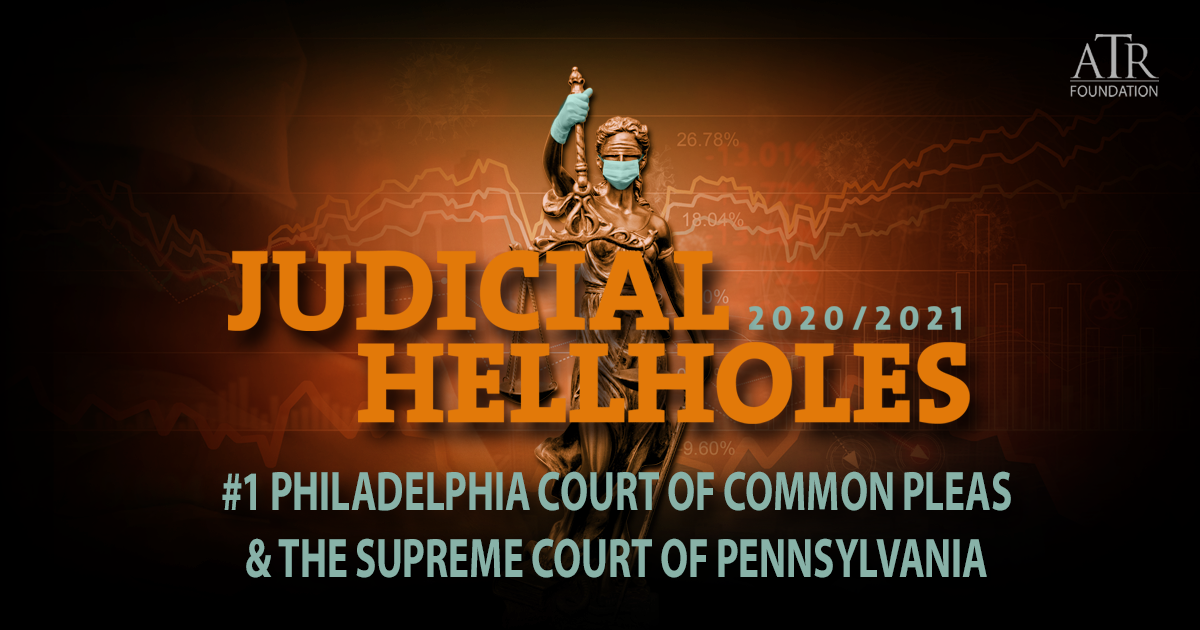#1 Judicial Hellhole Continues to Expand Liability for Business
The Pennsylvania Supreme Court, the current #1 Judicial Hellhole, continued to worsen the state’s civil justice climate with yet another liability-expanding decision.
On February 17, 2021, the Pennsylvania Supreme Court, in a 4-3 decision, held that a plaintiff did not need to prove that a business was fraudulent or negligent in its representation to the plaintiff to succeed on an Unfair Trade Practices and Consumer Protection Law (“CPL”) claim. By removing the requirement of fraud or negligence, the court removed any requirement that a business intended to mislead the consumer. In doing so, the Court “open[ed] the floodgates to an explosion of litigation by consumers with nothing more than ‘buyer’s remorse.’”
The case began in 1999 when an Ameriprise sales representative made a material misrepresentation in an insurance policy that he sold to the Greggs. After receiving a class action notice in the mail, the Greggs sued Ameriprise Financial alleging violations of the CPL, negligent misrepresentation, and fraudulent misrepresentation. A jury found for defendants regarding the negligent and fraudulent misrepresentation claims, but a judge found for the plaintiff on the CPL claim. Defendant appealed, claiming that if they were not negligent or fraudulent in the misrepresentation, they could not be held liable under the CPL. The Superior Court held for the plaintiff, and defendant appealed.
The Pennsylvania Supreme Court affirmed the lower court’s interpretation of the CPL and held that the plaintiffs did not have to prove negligent or fraudulent misrepresentation to prevail on their CPL claim, effectively making CPL a strict liability statute.
In it’s amicus brief, ATRA argued that the legislature did not intend for the standard under the CPL to be strict liability and the language of the statute did in fact require a showing of intent to deceive. This strict liability interpretation will have large policy implications. Allowing consumers to easily sue business could have severe ramifications on the state’s economy.
The Court, however, disagreed and found that a plain reading of the statute led to its interpretation. It found that the CPL should be construed broadly to prevent “unscrupulous business practices.” However, as the dissent stated, this interpretation removes protections for “honest businesspeople from incurring unforeseen penalties for statements or acts that no consumer would have been confused or misled by.” Additionally, this new standard imposed by the Court makes it easier for consumers to file suits against businesses leading to a rise in litigation costs which will be passed on to consumers. In the end, the Court’s decision will significantly harm consumers, businesses, and the Commonwealth.







